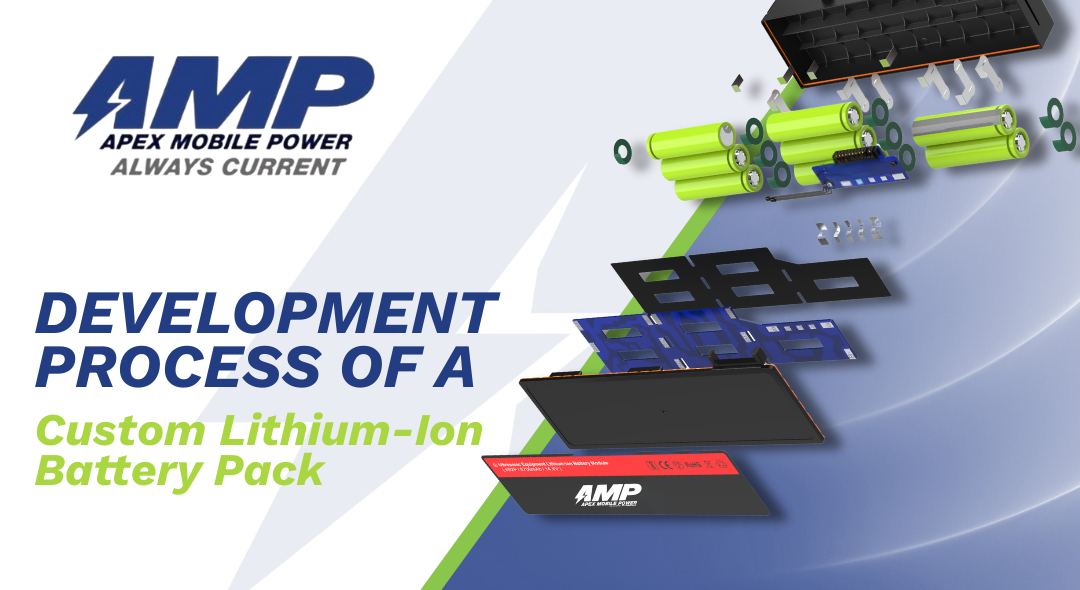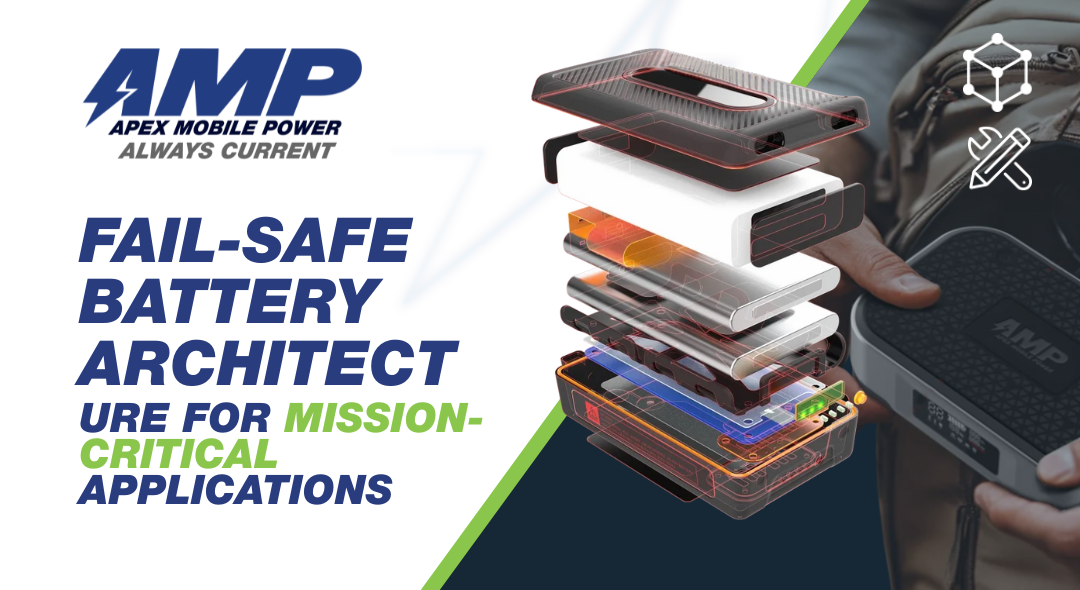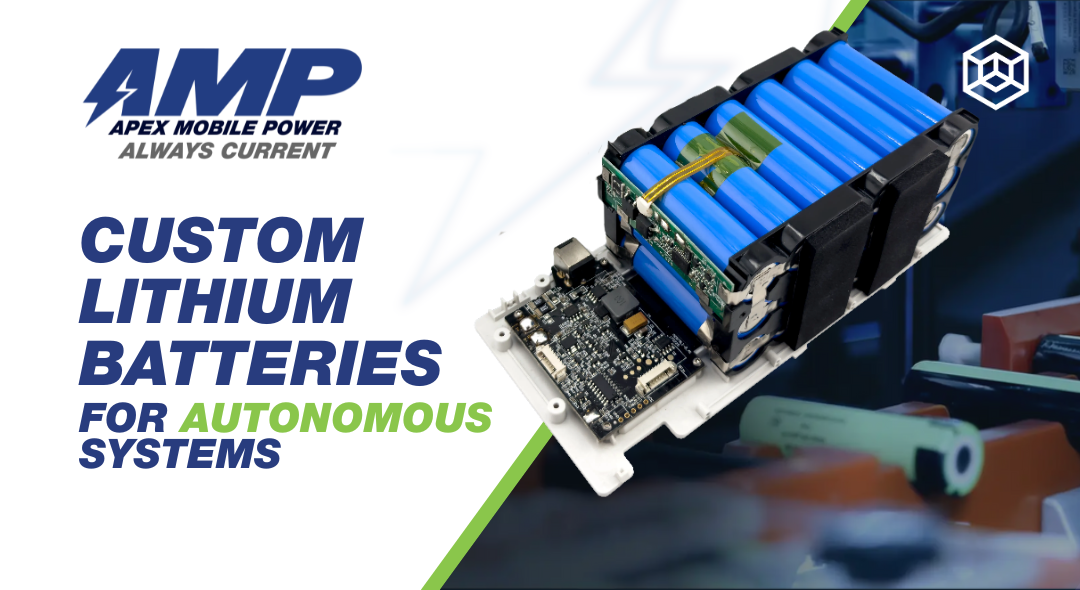Energy vs. Power
.png)
When designing a battery-powered system, one of the most common points of confusion is the difference between energy and power. Both matter. Both are essential. But knowing which one your application depends on most is key to getting the right performance—and avoiding costly design mistakes.
At Apex Mobile Power, we help engineers and OEMs get this right from day one. Here is what you need to know.
Energy and Power Are Not the Same
Let’s start with definitions:
- Energy is the total amount of work a battery can do over time. It is measured in watt-hours (Wh).
- Power is how fast that energy is delivered. It is measured in watts (W).
Think of energy as the size of the fuel tank, and power as the size of the engine. One determines how long you can run, the other determines how much you can do at once.
When You Need More Energy
If your system is designed for long, continuous use at moderate power levels, you need a battery with high energy capacity. These are examples of energy-prioritized applications:
Autonomous robots that must operate for a full shift without charging
Medical carts or equipment that must stay powered overnight
Portable lighting and sensor systems in field deployments
A battery with high energy will have a larger capacity in watt-hours and is typically optimized for slower discharge over time.
When You Need More Power
On the other hand, if your system must deliver fast, high-output bursts, then power is your priority. Applications like these require high-discharge capabilities:
Electric saws or drills that spike power usage under load
UAVs that require rapid energy delivery during liftoff
Emergency tools or e-mobility devices that demand torque and acceleration
These batteries need to be designed with cell chemistry and configuration that support fast current draw without overheating or triggering protection limits.
What Happens When You Get It Wrong
Designing for energy when you really need power or vice versa—can lead to:
- Undersized packs that shut down under load
- Oversized systems that waste cost and space
- Excessive heat generation and cycle degradation
- Downtime due to mismatch between system load and battery capacity
This is where our engineering-first approach delivers results.
AMP Engineers for the Right Balance
At Apex Mobile Power, we do not guess—we engineer. Every custom battery system we build is designed around your specific requirements, including:
- Load profile analysis
- Runtime targets and duty cycle expectations
- Voltage and current parameters
- Application-specific environmental and mechanical constraints
Our team selects the right cell chemistry (Li-ion, LiFePO₄, or hybrid), configures series and parallel connections for your needs, and integrates a smart BMS to manage both energy and power delivery.
Get the Chemistry and Configuration Right
Whether you are building a handheld tool, an autonomous vehicle, or a high-capacity energy storage system, knowing whether your application needs more energy or more power is critical to getting the performance and safety you expect.
Not sure where to start? Talk to our team and let’s get your specs right from the beginning.







